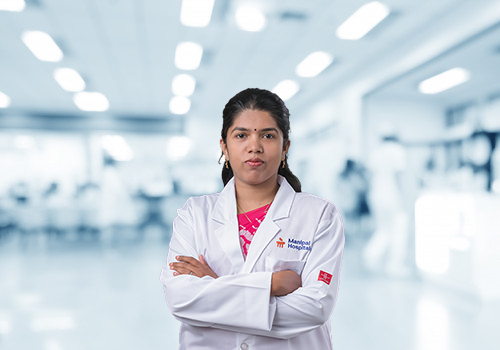
HPV stands for human papillomavirus - the most common sexually transmitted infection (STI). Many HPV carriers have no symptoms but can still infect others through intimate relationships. Warts (a type of skin infection with rough, skin-coloured bumps) on the genitals or skin nearby are common symptoms of HPV infection. The virus has no cure, and warts may disappear on their own sometimes and sometimes treatments are given to remove them.
What is the Need for an HPV Vaccine?
-
The HPV virus is associated with a few cancers that develop in later stages of life, like cervical and anal cancers.
-
The most important cause of cervical cancer is HPV. It is common among sexually active individuals, as the spread occurs via intimate contact like vaginal or anal, or oral sex with a person who might be a carrier of HPV.
-
Various research concludes that 75% of sexually active individuals are prone to get HPV once in their lifetime.
-
Although most HPV infection cases resolve immediately, rarely some may progress to cancer if no treatment is provided on time.
-
Prevention is always better than cure. That proverb falls true for almost all vaccines. All types of vaccinations aim to make your body immune to potential infections. The tendency of a vaccinated individual to fight off an infection is higher than a non-vaccinated person.
-
Randomised trials and population-based studies have shown promising results with HPV vaccination dropping the rate of risk of developing cervical cancer significantly.
-
The Centre for Disease Control and Prevention advises young kids of age 9 years and above to get the HPV vaccine to avoid any cervical or anal cancer in the future.
Visit a top hospital for the HPV vaccine or get cervical cancer treatment in Salem if you are already experiencing the symptoms.
How does the HPV Vaccine Work?
The mechanism of action is the same as for any other immunization. The HPV vaccine stimulates our body to form antibodies against the HPV and stay on guard. If the virus enters a vaccinated person’s body, the antibodies bind to this virus and destroy it, preventing it from causing any sort of infection. The HPV vaccine is a precaution against getting any cervical cancer. The HPV vaccine is only a precautionary step in avoiding cervical cancer and not a cure.
How to Get HPV Vaccination Done in India?
Serum Institute of India, in collaboration with the Indian government, in September 2022, launched the HPV vaccine by the name CERVAVAC. The Indian Ministry of Health and Family Welfare has started the preparation to roll out the immunization programme for Human papillomavirus in a few States such as Tamil Nadu for 9-14 years girls and plans to extend it all over India. One can also get the vaccine dosage in private-sector healthcare facilities.
Are there Any Side Effects Associated with the HPV Vaccine?
The commonly encountered side effects are the following:
At the site of injection:
-
Soreness
-
Itching
-
Swelling
-
Mild pain
Apart from this, other rare side effects are:
-
Headache
-
Hives (a rash/skin irritation)
-
Fever
HPV can lead to some serious conditions in the later years of life, like cervical or anal cancer. So it's good to go for immunisation at an early age to improve its efficacy. Immunisations act as a barrier to preventing any HPV infection. The stats have shown the positive results of HPV vaccination and how it has reduced the cervical cancer rate overall.
Consult a top gynaecologist in Salem if you require an HPV vaccine or need treatment for your gynaecological issues.
FAQs
1. Who should get the HPV vaccine?
As per the Centers for Disease Control and Prevention (CDC), “Children ages 11–12 years should get two doses of HPV vaccine, given 6 to 12 months apart. The vaccines can be given starting at age 9 years. Children who start the HPV vaccine series on or after their 15th birthday need three doses, given over 6 months.” Its effectiveness is high if given at an early age, before the start of any sexual activity.
2. Is the HPV vaccine safe?
HPV vaccine has been tested for over a decade and found to be a safe vaccine that is highly effective in preventing cervical cancer.



















 4 Min Read
4 Min Read





.png)






